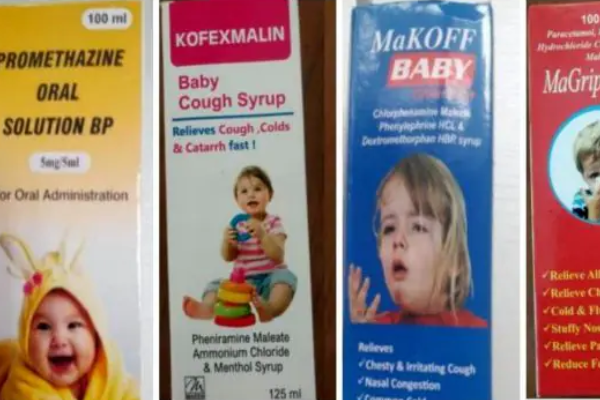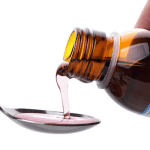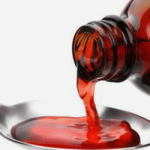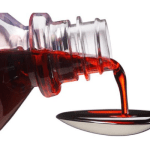India says local investigations carried on four cough syrups which allegedly caused the deaths of children in The Gambia were found to be compliant with safety specifications.
The World Health Organisation had in October said the four syrups made by India’s Pharmaceuticals may be linked to the deaths of at least sixty-six children, but India’s drug regulator said in a letter that the WHO hasn’t provided any evidence yet.
[wonderplugin_video iframe=”https://youtu.be/8te5P3EaG_w” lightbox=0 lightboxsize=1 lightboxwidth=960 lightboxheight=540 autoopen=0 autoopendelay=0 autoclose=0 lightboxtitle=”” lightboxgroup=”” lightboxshownavigation=0 showimage=”” lightboxoptions=”” videowidth=600 videoheight=400 keepaspectratio=1 autoplay=0 loop=0 videocss=”position:relative;display:block;background-color:#000;overflow:hidden;max-width:100%;margin:0 auto;” playbutton=”https://www.tvcnews.tv/wp-content/plugins/wonderplugin-video-embed/engine/playvideo-64-64-0.png”]
The World Health Organization said it tested samples and found that the drugs contained “”unacceptable amounts of diethylene glycol and ethylene glycol,” chemicals often meant for industrial use” which are toxic to humans and could be fatal if consumed.
India exports pharmaceuticals to over 200 nations and adds to the US’s vast generic market. Its pharmaceutical business is one of the most important in terms of volume, with a current turnover of $50 billion. However, critics claim that official control is severely insufficient, which might foster situations conducive to serious infractions.
India says local investigations carried on four cough syrups which allegedly caused the deaths of children in The Gambia were found to be compliant with safety specifications.
The World Health Organisation had in October said the four syrups made by India’s Pharmaceuticals may be linked to the deaths of at least sixty-six children, but India’s drug regulator said in a letter that the WHO hasn’t provided any evidence yet.
[wonderplugin_video iframe=”https://youtu.be/8te5P3EaG_w” lightbox=0 lightboxsize=1 lightboxwidth=960 lightboxheight=540 autoopen=0 autoopendelay=0 autoclose=0 lightboxtitle=”” lightboxgroup=”” lightboxshownavigation=0 showimage=”” lightboxoptions=”” videowidth=600 videoheight=400 keepaspectratio=1 autoplay=0 loop=0 videocss=”position:relative;display:block;background-color:#000;overflow:hidden;max-width:100%;margin:0 auto;” playbutton=”https://www.tvcnews.tv/wp-content/plugins/wonderplugin-video-embed/engine/playvideo-64-64-0.png”]
The World Health Organization said it tested samples and found that the drugs contained “”unacceptable amounts of diethylene glycol and ethylene glycol,” chemicals often meant for industrial use” which are toxic to humans and could be fatal if consumed.
India exports pharmaceuticals to over 200 nations and adds to the US’s vast generic market. Its pharmaceutical business is one of the most important in terms of volume, with a current turnover of $50 billion. However, critics claim that official control is severely insufficient, which might foster situations conducive to serious infractions.
India says local investigations carried on four cough syrups which allegedly caused the deaths of children in The Gambia were found to be compliant with safety specifications.
The World Health Organisation had in October said the four syrups made by India’s Pharmaceuticals may be linked to the deaths of at least sixty-six children, but India’s drug regulator said in a letter that the WHO hasn’t provided any evidence yet.
[wonderplugin_video iframe=”https://youtu.be/8te5P3EaG_w” lightbox=0 lightboxsize=1 lightboxwidth=960 lightboxheight=540 autoopen=0 autoopendelay=0 autoclose=0 lightboxtitle=”” lightboxgroup=”” lightboxshownavigation=0 showimage=”” lightboxoptions=”” videowidth=600 videoheight=400 keepaspectratio=1 autoplay=0 loop=0 videocss=”position:relative;display:block;background-color:#000;overflow:hidden;max-width:100%;margin:0 auto;” playbutton=”https://www.tvcnews.tv/wp-content/plugins/wonderplugin-video-embed/engine/playvideo-64-64-0.png”]
The World Health Organization said it tested samples and found that the drugs contained “”unacceptable amounts of diethylene glycol and ethylene glycol,” chemicals often meant for industrial use” which are toxic to humans and could be fatal if consumed.
India exports pharmaceuticals to over 200 nations and adds to the US’s vast generic market. Its pharmaceutical business is one of the most important in terms of volume, with a current turnover of $50 billion. However, critics claim that official control is severely insufficient, which might foster situations conducive to serious infractions.
India says local investigations carried on four cough syrups which allegedly caused the deaths of children in The Gambia were found to be compliant with safety specifications.
The World Health Organisation had in October said the four syrups made by India’s Pharmaceuticals may be linked to the deaths of at least sixty-six children, but India’s drug regulator said in a letter that the WHO hasn’t provided any evidence yet.
[wonderplugin_video iframe=”https://youtu.be/8te5P3EaG_w” lightbox=0 lightboxsize=1 lightboxwidth=960 lightboxheight=540 autoopen=0 autoopendelay=0 autoclose=0 lightboxtitle=”” lightboxgroup=”” lightboxshownavigation=0 showimage=”” lightboxoptions=”” videowidth=600 videoheight=400 keepaspectratio=1 autoplay=0 loop=0 videocss=”position:relative;display:block;background-color:#000;overflow:hidden;max-width:100%;margin:0 auto;” playbutton=”https://www.tvcnews.tv/wp-content/plugins/wonderplugin-video-embed/engine/playvideo-64-64-0.png”]
The World Health Organization said it tested samples and found that the drugs contained “”unacceptable amounts of diethylene glycol and ethylene glycol,” chemicals often meant for industrial use” which are toxic to humans and could be fatal if consumed.
India exports pharmaceuticals to over 200 nations and adds to the US’s vast generic market. Its pharmaceutical business is one of the most important in terms of volume, with a current turnover of $50 billion. However, critics claim that official control is severely insufficient, which might foster situations conducive to serious infractions.
India says local investigations carried on four cough syrups which allegedly caused the deaths of children in The Gambia were found to be compliant with safety specifications.
The World Health Organisation had in October said the four syrups made by India’s Pharmaceuticals may be linked to the deaths of at least sixty-six children, but India’s drug regulator said in a letter that the WHO hasn’t provided any evidence yet.
[wonderplugin_video iframe=”https://youtu.be/8te5P3EaG_w” lightbox=0 lightboxsize=1 lightboxwidth=960 lightboxheight=540 autoopen=0 autoopendelay=0 autoclose=0 lightboxtitle=”” lightboxgroup=”” lightboxshownavigation=0 showimage=”” lightboxoptions=”” videowidth=600 videoheight=400 keepaspectratio=1 autoplay=0 loop=0 videocss=”position:relative;display:block;background-color:#000;overflow:hidden;max-width:100%;margin:0 auto;” playbutton=”https://www.tvcnews.tv/wp-content/plugins/wonderplugin-video-embed/engine/playvideo-64-64-0.png”]
The World Health Organization said it tested samples and found that the drugs contained “”unacceptable amounts of diethylene glycol and ethylene glycol,” chemicals often meant for industrial use” which are toxic to humans and could be fatal if consumed.
India exports pharmaceuticals to over 200 nations and adds to the US’s vast generic market. Its pharmaceutical business is one of the most important in terms of volume, with a current turnover of $50 billion. However, critics claim that official control is severely insufficient, which might foster situations conducive to serious infractions.
India says local investigations carried on four cough syrups which allegedly caused the deaths of children in The Gambia were found to be compliant with safety specifications.
The World Health Organisation had in October said the four syrups made by India’s Pharmaceuticals may be linked to the deaths of at least sixty-six children, but India’s drug regulator said in a letter that the WHO hasn’t provided any evidence yet.
[wonderplugin_video iframe=”https://youtu.be/8te5P3EaG_w” lightbox=0 lightboxsize=1 lightboxwidth=960 lightboxheight=540 autoopen=0 autoopendelay=0 autoclose=0 lightboxtitle=”” lightboxgroup=”” lightboxshownavigation=0 showimage=”” lightboxoptions=”” videowidth=600 videoheight=400 keepaspectratio=1 autoplay=0 loop=0 videocss=”position:relative;display:block;background-color:#000;overflow:hidden;max-width:100%;margin:0 auto;” playbutton=”https://www.tvcnews.tv/wp-content/plugins/wonderplugin-video-embed/engine/playvideo-64-64-0.png”]
The World Health Organization said it tested samples and found that the drugs contained “”unacceptable amounts of diethylene glycol and ethylene glycol,” chemicals often meant for industrial use” which are toxic to humans and could be fatal if consumed.
India exports pharmaceuticals to over 200 nations and adds to the US’s vast generic market. Its pharmaceutical business is one of the most important in terms of volume, with a current turnover of $50 billion. However, critics claim that official control is severely insufficient, which might foster situations conducive to serious infractions.
India says local investigations carried on four cough syrups which allegedly caused the deaths of children in The Gambia were found to be compliant with safety specifications.
The World Health Organisation had in October said the four syrups made by India’s Pharmaceuticals may be linked to the deaths of at least sixty-six children, but India’s drug regulator said in a letter that the WHO hasn’t provided any evidence yet.
[wonderplugin_video iframe=”https://youtu.be/8te5P3EaG_w” lightbox=0 lightboxsize=1 lightboxwidth=960 lightboxheight=540 autoopen=0 autoopendelay=0 autoclose=0 lightboxtitle=”” lightboxgroup=”” lightboxshownavigation=0 showimage=”” lightboxoptions=”” videowidth=600 videoheight=400 keepaspectratio=1 autoplay=0 loop=0 videocss=”position:relative;display:block;background-color:#000;overflow:hidden;max-width:100%;margin:0 auto;” playbutton=”https://www.tvcnews.tv/wp-content/plugins/wonderplugin-video-embed/engine/playvideo-64-64-0.png”]
The World Health Organization said it tested samples and found that the drugs contained “”unacceptable amounts of diethylene glycol and ethylene glycol,” chemicals often meant for industrial use” which are toxic to humans and could be fatal if consumed.
India exports pharmaceuticals to over 200 nations and adds to the US’s vast generic market. Its pharmaceutical business is one of the most important in terms of volume, with a current turnover of $50 billion. However, critics claim that official control is severely insufficient, which might foster situations conducive to serious infractions.
India says local investigations carried on four cough syrups which allegedly caused the deaths of children in The Gambia were found to be compliant with safety specifications.
The World Health Organisation had in October said the four syrups made by India’s Pharmaceuticals may be linked to the deaths of at least sixty-six children, but India’s drug regulator said in a letter that the WHO hasn’t provided any evidence yet.
[wonderplugin_video iframe=”https://youtu.be/8te5P3EaG_w” lightbox=0 lightboxsize=1 lightboxwidth=960 lightboxheight=540 autoopen=0 autoopendelay=0 autoclose=0 lightboxtitle=”” lightboxgroup=”” lightboxshownavigation=0 showimage=”” lightboxoptions=”” videowidth=600 videoheight=400 keepaspectratio=1 autoplay=0 loop=0 videocss=”position:relative;display:block;background-color:#000;overflow:hidden;max-width:100%;margin:0 auto;” playbutton=”https://www.tvcnews.tv/wp-content/plugins/wonderplugin-video-embed/engine/playvideo-64-64-0.png”]
The World Health Organization said it tested samples and found that the drugs contained “”unacceptable amounts of diethylene glycol and ethylene glycol,” chemicals often meant for industrial use” which are toxic to humans and could be fatal if consumed.
India exports pharmaceuticals to over 200 nations and adds to the US’s vast generic market. Its pharmaceutical business is one of the most important in terms of volume, with a current turnover of $50 billion. However, critics claim that official control is severely insufficient, which might foster situations conducive to serious infractions.














